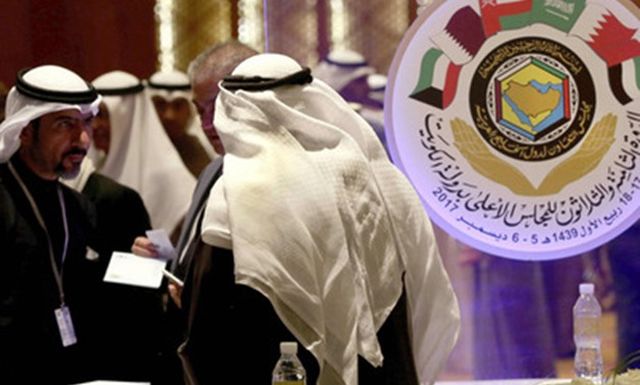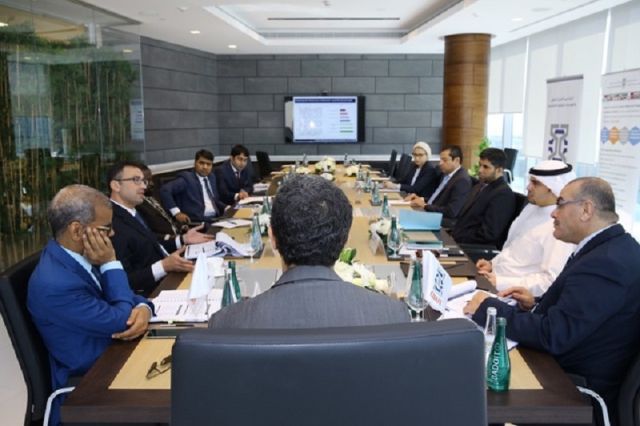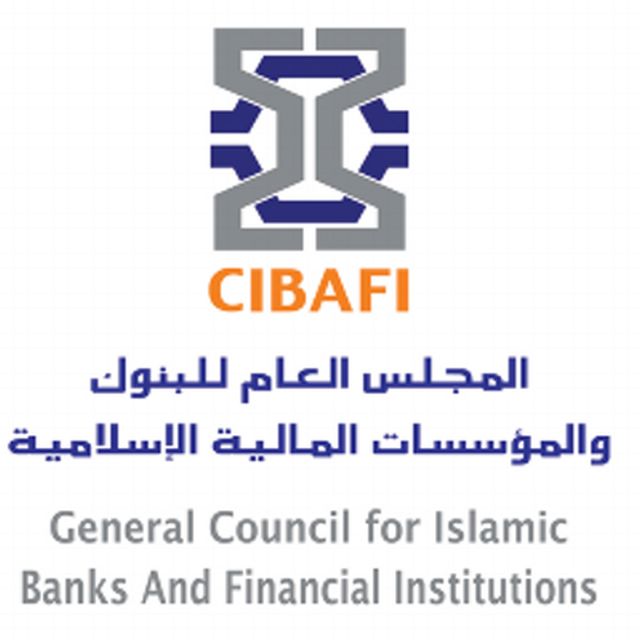
by Editor | May 25, 2021 | Markets, Muslim World, Social Media
 Manama : Bahrain announced tough measures against social media accounts that “spread malicious rumors” under the guise of the Royal Court.
Manama : Bahrain announced tough measures against social media accounts that “spread malicious rumors” under the guise of the Royal Court.
Interior Minister Shaikh Rashid bin Abdullah Al Khalifa noted on Sunday steps to deal with unprecedented chaos by disruptive social media accounts, Xinhua reported.
“Such accounts spread malicious rumours that went against social harmony and civil peace,” the minister said, adding that security authorities would tackle any offence against national and traditional values.
“Some disruptive social media accounts claimed they were run by the Royal Court while it had been proved they were operated through malicious websites and had no links with the Royal Court or any other official organization in Bahrain,” he added.
He said the Royal Court is an official authority that supervises all constitutional organisations in the kingdom.
The minister said the operators of some of those accounts were identified and others would continue to be pursued. “We won’t be far from tracking them down and taking legal action against them even if we need to draft new legislation to tackle the latest developments in such crimes.”
The interior minister said there would be a follow-up and steps would be taken to make them accountable in accordance with the law to stop their violations.
Following the announcement, Chief Prosecutor of the city of Muharraq Hussain Khamis said the public prosecution had launched an investigation into misusing social media networks by a suspect who posted defamatory tweets.
—IANS

by Editor | May 25, 2021 | Business Summit, Events, Muslim World, Social Round-up
 Kuwait : The 38th annual summit of the Gulf Arab heads of state will convene here on Tuesday and Wednesday, officials said, despite an ongoing dispute between some members of the group.
Kuwait : The 38th annual summit of the Gulf Arab heads of state will convene here on Tuesday and Wednesday, officials said, despite an ongoing dispute between some members of the group.
A rift between the Gulf Cooperation Council members Saudi Arabia, Bahrain and the United Arab Emirates (UAE), on one side, and Qatar on the other has put this year’s annual meeting in doubt, Al Arabiya reported.
The crisis, which began in June, revolves around allegations by Saudi Arabia, the UAE, Bahrain and Egypt that Qatar supports terrorism, a charge Doha denies. Qatar says the four countries were trying to force Doha to fall in line with their own foreign policy views.
Qatar’s Foreign Minister Sheikh Mohammed bin Abdulrahman al-Thani met his Gulf Arab counterparts on Monday ahead of the summit, one of the highest official encounters since some of them cut diplomatic, trade and travel links with Doha.
Al-Thani said that Qatari Emir Sheikh Tamim bin Hamad al-Thani would attend the six-nation Gulf Cooperation Council (GCC) meeting, despite the dispute within the group.
—IANS

by Editor | May 25, 2021 | Muslim World
 Manama : Aligned with its role as advocate of the Islamic Financial Services Industry (IFSI), the General Council for Islamic Banks and Financial Institutions (CIBAFI), the global umbrella of Islamic financial institutions, announced that it has submitted its comments on Tuesday to the Basel Committee on Banking Supervision (BCBS) on the Consultative Document on “Sound Practices: Implications of fintech developments for banks and bank supervisors.”
Manama : Aligned with its role as advocate of the Islamic Financial Services Industry (IFSI), the General Council for Islamic Banks and Financial Institutions (CIBAFI), the global umbrella of Islamic financial institutions, announced that it has submitted its comments on Tuesday to the Basel Committee on Banking Supervision (BCBS) on the Consultative Document on “Sound Practices: Implications of fintech developments for banks and bank supervisors.”
The Consultative Document has been issued on 31st August 2017 and was open for public consultation until 31st October 2017.
CIBAFI thanked the BCBS for giving the opportunity to the Islamic Financial Services Industry to comment on the Consultative Document. CIBAFI has provided collective feedback of its member banks from over 32 jurisdictions, comprising the following key points.
First, the Consultative Document sets out five scenarios for the way the banking industry may change, ranging from one in which existing banks adopt new technology to improve their services (but customer relationships remain essentially unchanged), to one in which banks become essentially irrelevant, as customers interact directly with individual financial services providers. CIBAFI believes that, while major banks in the most developed countries may be able to adapt to most of these scenarios, and will have themselves a role in determining which will occur, this is less obvious for smaller banks in less developed countries. Most Islamic banks are of this kind, and there are indeed challenges in the way they need to adapt their knowledge and resources for such changes. Further support from bank supervisors would be welcome.
Second, the BCBS implicitly recognizes that fintech firms may have a greater impact in some markets than others. The suggestion is that in less developed banking markets, and mainly where financial inclusion is relatively low, new entrants may be able to use technology to reach consumers who have no, or limited, existing banking relationships. However, although many Islamic banks operate in less developed and low financial inclusion markets, for Islamic banking, in particular, the threat of new entrants is smaller due to the Shariah compliance requirements. It is thus an opportunity for Islamic banks to collaborate with fintech firms to enhance financial inclusion.
Third, the CD lays emphasis on the need to maintain Anti-Money Laundering and Countering the Financing of Terrorism (AML/CFT) controls in fintech-enabled transactions, though it recognizes the assistance that some new technologies, including artificial intelligence, may offer.
In conclusion, CIBAFI highlighted that its members have pointed out that more comprehensive researches might be needed to assess the macro level effect of fintech, the impact on the economy, financial stability, and the way the central banks may still influence the economy via the monetary and other policies. There may also be tax issues, including whether tax regimes provide incentives or disincentives for fintech firms. CIBAFI recognizes, therefore, need to highlight the importance of such work to the attention of those who do have competence in these areas.
In addition to policy and regulatory advocacy, CIBAFI continues to support the Islamic Financial Services Industry through various activities and initiatives. These include providing industry stakeholders with a platform to discuss emerging issues, representing the industry at major global financial events, and sharing knowledge through specialized publications and comprehensive training programmes.
CIBAFI is an international organization established in 2001 and Headquartered in the Kingdom of Bahrain. CIBAFI is affiliated with the Organization of Islamic Cooperation (OIC). CIBAFI represents the Islamic financial services industry globally, defending and promoting its role, consolidating co-operation among its members, and with other institutions with similar interests and objectives. With over 120 members from 32 jurisdictions, representing market players, international intergovernmental organizations and professional firms, and industry associations.
—SM/OIC-UNA

by Editor | May 25, 2021 | Muslim World
 Manama : The 24th edition of World Islamic Banking Conference (WIBC), the world’s longest running Islamic banking conference, is set to return to Bahrain this December for three days, and will take stock of the most pressing issues affecting the global financial landscape.
Manama : The 24th edition of World Islamic Banking Conference (WIBC), the world’s longest running Islamic banking conference, is set to return to Bahrain this December for three days, and will take stock of the most pressing issues affecting the global financial landscape.
Middle East Global Advisors, a leading financial intelligence platform facilitating the development of knowledge-based economies in the MENASEA markets, announced that the largest and most prestigious gathering of Islamic banking and finance leaders in the world will be held from December 4 to 6 at the ART Rotana Hotel in Amwaj Islands, Bahrain, TradeArabia News Service reported.
The theme for WIBC 2017 – Drivers of Economic Growth & Risks: Policymakers & Regulators is in line with the conference’s steady vision to serve as a compass for the global Islamic finance and banking industry, and is expected to draw participation from over 1,300 global industry leaders, policymakers, innovators, and stakeholders, all focused on generating breakthrough insights that help navigate through the complexities of the global financial system, a statement said.
Ehsan Abbas, chairman, Middle East Global Advisors, said: “This year’s event will take place within the context of increasing global political and economic turbulence particularly the growing skepticism against the banking and finance industry attributed to the Global Financial Crisis of 2008-09. Over the years, this skepticism shaped into displeasure towards “the establishment” incumbents in the government, official and private sectors, a sentiment that was echoed in the recent Edelman Trust Barometer.”
Khalid Hamad Abdul-Rahman Hamad, executive director Banking Supervision, Central Bank of Bahrain, said: “The Central Bank of Bahrain takes great pride in supporting the 24th World Islamic Banking Conference. WIBC has a track record of presenting topical issues every year. Some of the key topics this year will be the moral question in finance, the impact of Fintech and new trends in Shariah governance. The deceleration in the growth of Islamic finance worldwide continued tightening of regulations and Fintech provide a significant opportunity to the most efficient and technology savvy players to gain market share at the expense of their less efficient conventional and Shariah-compliant competitors.
“The WIBC will witness a gathering of global subject matter experts who will help the audience understand the dynamics of an industry in transition. It will also provide an excellent networking opportunity to individuals and a platform for companies to exhibit their services,” he said.
Key features for WIBC 2017 include: Governors’ Addresses; High-profile Regulatory Debate among Central Bankers; a conversation with a distinguished Islamic finance veteran – Adnan Ahmed Yousif, chief executive and president, Al Baraka Banking Group on the future course of the Islamic economy, a CIO-focused panel session on harnessing digital technologies with the vision of staying relevant; Panel discussions focusing on dynamic capital markets, sustainable, equitable & inclusive growth, new horizons for Islamic finance, ESG Investing and the influence of energy prices, VAT, the effect of the recent global economic & political developments and much more.
Committed to its vision to innovate year-on-year, the 24th edition will focus on generating thought-leadership via an exclusive WIBC Knowledge-Sharing Series whereby a select group of industry leaders will make focused presentations/speeches that will be followed by opening the floor to questions from the audience and a select panel of experts, who will be further discussing these key topics at length. The exclusive series will touch upon a number of topical issues like Leveraging Islamic Capital Markets for innovative solutions that will focus on Aviation Financing, Alternative/Renewable Energy Financing and the WIBC Islamic Economy Series concentrate on developing a halal ecosystem, amongst others, the statement said.
Industry leaders will also be recognized for their excellence through the WIBC Performance Awards 2017.
—OIC-UNA/IINA

by Editor | May 25, 2021 | Muslim World
 Manama : Aligned with its role as advocate of the Islamic Financial Services Industry (IFSI), the General Council for Islamic Banks and Financial Institutions (CIBAFI) – the global umbrella of Islamic financial institutions – on Tuesday submitted its comments to the Basel Committee on Banking Supervision (BCBS) on the Consultative Document on “Simplified alternative to the standardized approach to market risk capital requirements”.
Manama : Aligned with its role as advocate of the Islamic Financial Services Industry (IFSI), the General Council for Islamic Banks and Financial Institutions (CIBAFI) – the global umbrella of Islamic financial institutions – on Tuesday submitted its comments to the Basel Committee on Banking Supervision (BCBS) on the Consultative Document on “Simplified alternative to the standardized approach to market risk capital requirements”.
The Consultative Document was issued on June 29 and was open for public consultation until September 27, according to a statement received Thursday from CIBAFI.
CIBAFI thanked the BCBS for giving the opportunity to the IFSI to comment on the Consultative Document before the proposed simplified alternative approach is adopted. CIBAFI has provided collective feedback of its member banks from over 32 jurisdictions, comprising the following key points:
Islamic banks are, for the most part, relatively small by global standards and are mainly based in emerging markets. For that reason alone, they would be likely to take a very little market risk. The fact that they are Islamic, however, means that for Shariah compliance reasons, they will be very restricted in their ability to take short positions or to use derivatives. This is likely to make their market positions simpler still, and those positions are likely to remain simple in the longer term.
Moreover, the design of the reduced sensitivities-based method (R-SbM) is significantly different from the design of the already widely-used Basel II standardized approach. CIBAFI is therefore concerned that the implementation of this method may pose substantial implementing challenges and costs for Islamic banks that already use Basel II approach. In addition, the benefits of implementation are uncertain and yet to be clarified.
Therefore, the view of CIBAFI is to prefer a recalibrated Basel II approach, but of course subject to the details of the way this proposal is developed and its implications for capital.
In its submission to the BCBS, CIBAFI expressed its appreciation of the work that the BCBS does to maintain sound regulatory practices and highlighted the need for the BCBS to align its work recognizing the Islamic financial industry’s considerations.
In addition to policy and regulatory advocacy, CIBAFI continues to support the Islamic Financial Services Industry through various activities and initiatives. These include providing industry stakeholders with a platform to discuss emerging issues, representing the industry at major global financial events, and sharing knowledge through specialized publications and comprehensive training programs.
CIBAFI, an affiliate of the Organization of Islamic Cooperation (OIC), is an international organization headquartered in the Kingdom of Bahrain. It was established in 2001.
—AA/AB/IINA

 Manama : Bahrain announced tough measures against social media accounts that “spread malicious rumors” under the guise of the Royal Court.
Manama : Bahrain announced tough measures against social media accounts that “spread malicious rumors” under the guise of the Royal Court.



